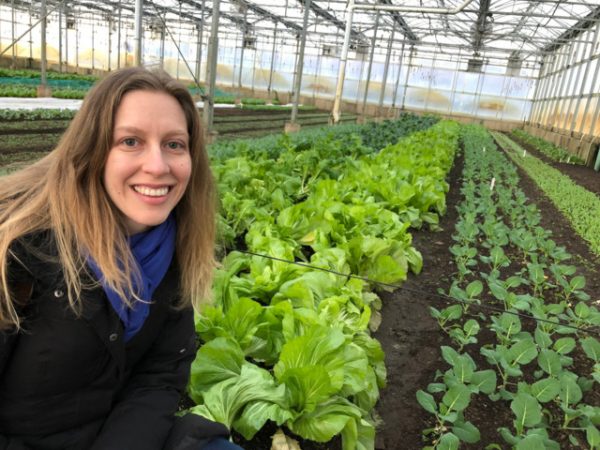Blog traffic has tripled as more Washingtonians spend more time cooking at home.
 Rachael JacksonWe’ve all opened the crisper of the refrigerator and wondered whether we’d get sick from eating an onion or apple that is no longer a model specimen. Unlike packaged goods, fruits and vegetables don’t come with expiration dates.
Rachael JacksonWe’ve all opened the crisper of the refrigerator and wondered whether we’d get sick from eating an onion or apple that is no longer a model specimen. Unlike packaged goods, fruits and vegetables don’t come with expiration dates.
A website a D.C. resident created to help home cooks decide whether they should trash produce that looks a little funky has seen its traffic triple during the COVID-19 pandemic. With restaurants closed to on-premise dining, Washingtonians are cooking at home much more often.
Rachael Jackson, a journalist and researcher who’s on the board of the DC Food Recovery Working Group, launched Eat or Toss after signing up for a sub-par CSA. “I started getting a farm share where I’m pretty sure the farmer was storing things longer than he should,” she says. “Some items were confusing. They looked off in ways I didn’t understand. I didn’t want to get sick, but I also didn’t want to waste food.”
Her journalistic instincts kicked in and she sought to understand more about what happens to produce after it’s picked. She calls on experts ranging from food scientists, post-harvest researchers, horticulturists, botanists, plant pathologists, microbiologists, and authorities on food safety to weigh in on her posts.
Jackson says the craziest thing she’s covered this year is the elusive purple orange. After a woman in Australia sliced an orange that looked normal, hours later some segments had turned a deep shade of indigo. Chemistry was the culprit. A pigment in the orange reacted with iron on the knife used to chop it.
Most Eat or Toss blog entries explain more common occurrences. Does your onion have green skin? Do your tomatoes have circular scars? Did you find a worm in your turnip?
Jackson is tackling sweet potato sprouts next. “You’re probably aware that regular potato sprouts are best avoided because they contain toxins, but it turns out that sweet potato sprouts are fine, and you can even eat them if you’d like,” Jackson says. “In fact, sweet potato greens are quite healthy and are regularly eaten in some parts of the world.”
Eat or Toss has a helpful index so you can search by food. There are also recipes for fighting food waste.
“Knowing the science behind why something looks funny is reassuring,” Jackson says. “It takes the mystery out of it.”
This story is free
But it wasn’t free to make. Hundreds of readers support our work and keep our reporting free for everyone. Will you become one of them?